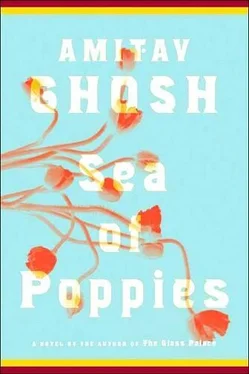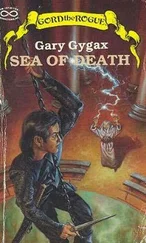+ bheesty / bheestie / beasty / bhishti: 'The mysteriesof water-carrying, the instrument of which trade was the mussuck. In the south, according to Sir Henry, the terms are tunny-catcheror tunnyketchi.'
bichawna/bichana (*The Glossary): 'Bedding or bed, from which bichawnadar, or "bed-maker", an expression that must be used with some care because of the possibility of innuendo.'
bichawnadar: See above.
bilayuti (*The Glossary): 'Strange that we should have become accustomed to using a version of the Turkish/Arabic wilayat to refer to England; even stranger that the English should adapt it to their own use as blatty. In its bilayuteeform it was often attached, as Sir Henry correctly notes, to foreign and exotic things (hence bilayati bainganfor "tomato"). Sir Henry was however gravely in error on another such compound, namely bilayuteepawnee. Although he correctly glosses this as "soda-water", he is wrong in his contention that the people of Hind. believed bilayutee-pawneecould confer great strength to the human body by reason of its gaseous bubbles. As I remember the matter, our wonder was occasioned not by the power of the bubbles as they were imbibed, but rather by the explosive detonations with which they were expelled.'
biscobra (*The Glossary): Neel took issue with Sir Henry's suggestion that this was the name of some kind of venomous lizard. 'Here is another example of a beautiful marriage of the eastern and western lexicons. The word "cobra" comes of course from a Portuguese contraction of a Latin root meaning "serpent". "Bis", on the other hand, is certainly a derivative of the Bengali word for poison, which has been absorbed into English as bish, although with the sense of a "blunder" or "mistake". It is impossible that such a term could be applied to a lizard, no matter how vengeful. In my opinion, it is none other than an English colloquialism for the hamadryad or King Cobra.'
+bish: See above.
b'longi/blongi (*The Linkister [6] ): 'Frequently mistaken as a contraction of the English "belong", this word is actually an elegant and economical copula, doing duty for the verb "to be" in all its many forms. Imagine then the embarrassment of the gri ffinwho pointed to his wife's dog and said: "Gudda blongiwife-o massa."'
+bobachee: 'As a barkentine is to a country boat, a Kaptanto a Nacoda, a vinthaleux to a dumbpoke, so in the kitchen is a bobacheeto a consummer. Each a potentate in his own way, they rule over a vast lashkar, consisting of spice-grinding masalchies, cabob-grilling caleefas, and others whose titles have mercifully lapsed from use. The bobachee, however, is the only culinary mysteryto lend his name to the kitchen.'
bobachee-connah/bawarchee-khana (*The Glossary): 'On this latter term I am at odds with every authority who has given the matter any thought: whereas they derive it from Hind. khana , "place" or "room", it is my intuition that it comes from the Bengali element kona/cona , meaning corner. This seems self-evident to me, for if the meaning of bobachee-connahwere indeed "cook-room", then surely the proper locution would be " bobbachy-camra". That this variant does sometimes occur, is to me the exception that proves the rule. Similarly goozle-coonuh/goozul-khanaappears to me to be often wrongly rendered as "bathing-room": when applied to a place where a bathtub is kept, it must surely mean "bathing-corner". But so far as other connah/khanacompounds are concerned, I will concede that it is often used in the sense of room: e.g. karkhana, jel-khana, babkhanaand the like.'
+bobbery/bobbery-bob: 'This word for "commotion", so much used in southern China, was nothing but an adaptation of our common baap-rébaap.' The Oracle's translation of this as 'oh my father!' is surely a rendition rather of the equally common baap-ré, for the full expression would be rather: 'father oh father!' An alternative derivation, from the Cantonese pa-pi – a noise – is, as the Barney-Bookrightly observes, extremely doubtful.
bolia/bauleah/baulia (*The Glossary): 'One of Bengal 's lighter river-craft, usually equipped with a small cabin.'
bora (*The Glossary): 'A large many-oared boat, commonly used in Bengal for the transportation of cargo.'
bowla (*The Glossary): 'These were, as I recall, portmanteaux or trunks, which were made to order by a few of our most skilled moochies.'
bowry/bowly (*The Barney-Book): 'In Hind. this generally referred to step-wells known as baolis . But after its passage into English it often came to be applied to pavilions that stood upon the banks of waterways large and small. Every nullahand nuddeecould boast of a few. It was sometimes used interchangeably with chabutra/chabutter.'
boya (*Roebuck): 'Laskari for "buoy".'
+buck: ' A good example of the subtle shifts of meaning that occur when words leap between languages. For in Hind. this expression conveys more a sense of idle chatter than of the boastfulness that attaches to it in English (no doubt because of the purported demeanour of that animal for the name of which it is a homonym). The extended form buckwash(from Hind. bakwás – "prattle", "idle talk" or "nonsense") has a sense similar to the cant expression "hogwash".'
budgrook (*The Glossary): 'A Portuguese coin of low denomination, the circulation of which is said to be restricted to Goa.'
+budmash/badmash: 'Like budzat and hurremzada term which causes more grief to lexicographers than to anyone to whom it was ever addressed as a term of abuse. What purpose is served by breaking it into its constituent Arabic and Persian elements when the whole forms a neat equivalent of the English "rascal"?' Neel was undoubtedly right to choose budmashover the now defunct budzatas fortune's favourite.
budzat/badzat (*The Glossary): See budmash.
+buggalow/bagala: 'A species of Arab dhow that was once a common sight on the Hooghly.'
bulkat (*The Glossary): 'As I recall, the name for a certain kind of large boat from the Telegu country.'
bullumteer (*The Glossary): 'An adaptation of the English "volunteer", used generally for sepoys who served overseas.'
buncus (*The Glossary): 'Malay che-roots that were greatly prized by some.'
+bunder/bandar: See +bandar.
+bunder-boat: See +bandar.
+bundook/bunduk: This common Arabic-derived word was much dictionarized even in Neel's day, usually being glossed as 'musket' or 'rifle', and it is in this form that it takes its place in the Oracle. This belies Neel's predictions, for this was another instance in which he accepted a questionable derivation from Barrère & Leland, who trace the Arabic original back to the the German name for Venice, 'Venedig'. The implication is that bundookwas introduced into Arabic by German mercenaries of the Venetian Republic, and was first used in the sense of 'crossbow'. Neel was mistaken in his belief that the word would revert to its original sense, except that it would come to be applied to the fine chandeliers and other articles of Venetian manufacture that were then much in vogue among wealthy Bengalis.
Читать дальше












